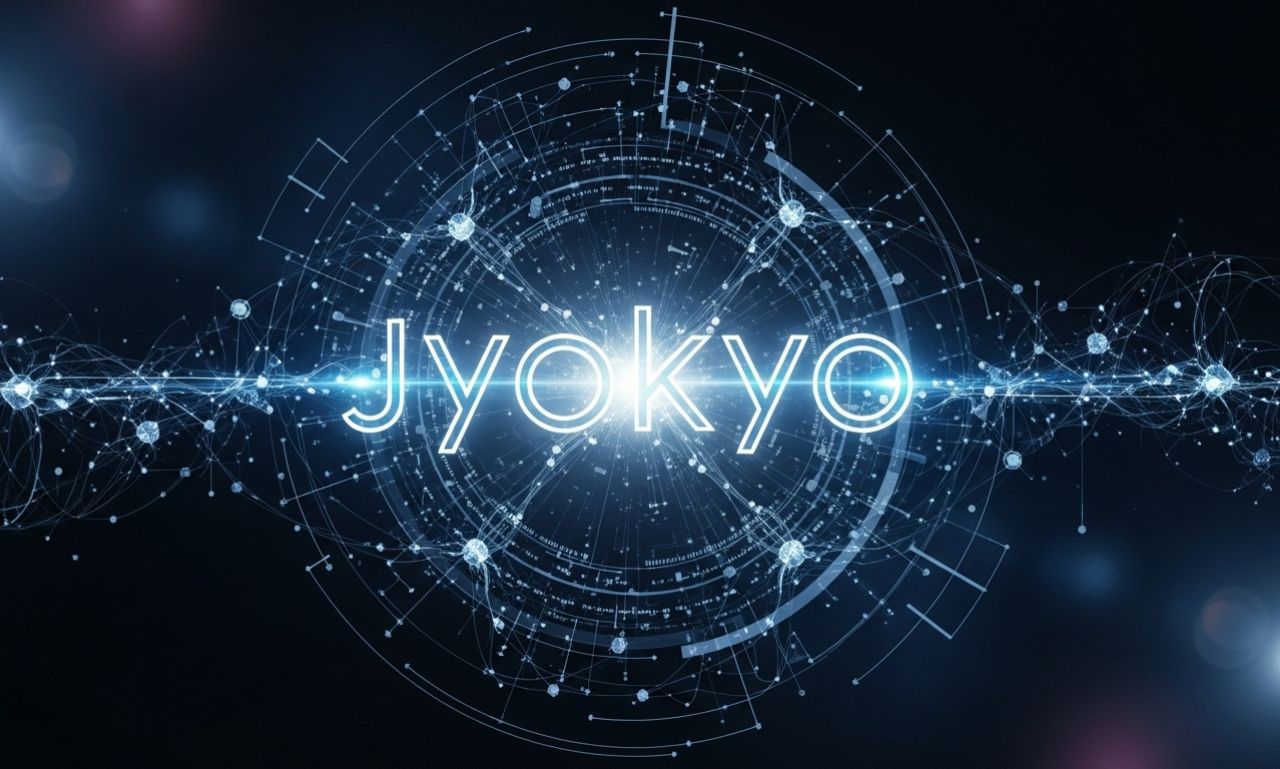In a world driven by data and automation, technology is rapidly evolving to not just analyze information but also understand context. That’s exactly what Jyokyo represents — a revolutionary AI-based platform designed to interpret, adapt, and act based on real-world situations.
As organizations shift toward smarter decision-making, Jyokyo stands at the intersection of artificial intelligence, automation, and contextual computing. This SEO-based article explores what Jyokyo is, how it works, its features, benefits, applications, and how it’s reshaping industries across the globe.
What is Jyokyo?
Jyokyo is a cutting-edge AI-driven contextual intelligence platform that helps businesses and individuals make smarter decisions by analyzing real-time data and understanding the circumstances around it.
The name “Jyokyo” comes from the Japanese word 状況 (jyokyō), meaning situation or circumstances. True to its name, the platform focuses on interpreting dynamic environments — allowing AI systems to respond not just with logic but with awareness.
Jyokyo combines machine learning (ML), natural language processing (NLP), and predictive analytics to create an AI that doesn’t just react — it understands.
The Core Philosophy Behind Jyokyo
Traditional AI systems operate on fixed rules and patterns. They can process data and predict outcomes but often fail to account for the broader situation or context.
Jyokyo was built to overcome this limitation. Its core philosophy is contextual awareness — understanding the why behind the what.
For instance, instead of simply flagging a sales drop, Jyokyo analyzes contributing factors such as market conditions, consumer behavior, weather patterns, or even geopolitical influences. This leads to smarter, more adaptive decision-making.
How Jyokyo Works
The Jyokyo AI framework is built on three main layers that enable it to process, understand, and act upon complex data environments:
1. Data Fusion Layer
Jyokyo integrates structured and unstructured data from multiple sources — IoT sensors, databases, APIs, social media, and cloud platforms. This layer ensures the system has a holistic view of every operational element.
2. Contextual Intelligence Layer
This is the heart of Jyokyo. It uses advanced natural language understanding (NLU) and context mapping algorithms to interpret data meaningfully. It can identify relationships, detect anomalies, and recognize situational trends in real time.
3. Decision Engine
Once context is understood, Jyokyo’s AI decision engine recommends or automates actions. This may include optimizing logistics, predicting consumer demand, or triggering alerts in industrial systems.
Together, these layers make Jyokyo a self-learning, adaptive intelligence platform capable of evolving with every new piece of information it encounters.
Key Features of Jyokyo
1. Contextual Data Processing
Jyokyo doesn’t just collect data — it interprets the meaning behind it, allowing businesses to derive actionable insights from complex datasets.
2. Real-Time Analytics
Through continuous monitoring, Jyokyo provides real-time insights that help organizations make instant, informed decisions.
3. Predictive Intelligence
By analyzing historical and live data, Jyokyo predicts potential outcomes and suggests preemptive measures, minimizing risks.
4. Automation and Workflow Integration
Jyokyo seamlessly integrates with existing enterprise systems (ERP, CRM, or IoT frameworks) to automate workflows and optimize operations.
5. Natural Language Interface
Users can interact with Jyokyo using natural language, making data analysis intuitive even for non-technical professionals.
6. Scalable Cloud Infrastructure
Built on cloud-native architecture, Jyokyo supports scalable deployment — from startups to large enterprises — ensuring flexibility and cost-efficiency.
Why Jyokyo is Different from Traditional AI Systems
Most AI platforms excel in analytics but fail in interpretation. Jyokyo fills this gap by understanding contextual cues.
| Aspect | Traditional AI | Jyokyo |
|---|---|---|
| Data Understanding | Data-focused | Context-focused |
| Adaptability | Rule-based | Self-learning |
| Integration | Static | Dynamic and API-rich |
| Response | Reactive | Predictive and adaptive |
| Interface | Technical | Conversational and natural |
This contextual depth gives a significant edge in decision-making accuracy, user experience, and adaptability.
Applications of Jyokyo
Jyokyo’s versatility allows it to be applied across multiple industries, enhancing productivity and efficiency everywhere it’s deployed.
1. Business Intelligence
Jyokyo helps enterprises analyze sales, marketing, and customer data while factoring in real-world influences such as seasonality and social trends.
2. Healthcare
In healthcare, Jyokyo analyzes patient records, lab data, and wearable device metrics to assist in diagnosis, personalized treatment, and early warning systems.
3. Smart Manufacturing
Jyokyo’s IoT integration helps manufacturers monitor production environments, predict equipment failures, and optimize supply chains based on contextual insights.
4. Retail and E-commerce
Retailers use Jyokyo to track buying patterns, forecast demand, and personalize recommendations, improving the shopping experience and profitability.
5. Financial Services
Jyokyo enhances fraud detection by understanding behavioral patterns in transactions, market volatility, and contextual anomalies.
6. Logistics and Transportation
It enables smart routing, predictive maintenance, and adaptive scheduling based on traffic, weather, and shipment data.
7. Smart Cities
In smart city ecosystems, Jyok yo can manage utilities, traffic systems, and public safety using contextual AI to improve urban living conditions.
Benefits of Using Jyokyo
1. Smarter Decision-Making
Jyok yo transforms raw data into contextual intelligence, enabling data-driven, real-time decision-making.
2. Improved Efficiency
Automating workflows and predicting outcomes significantly reduces operational costs and resource waste.
3. Enhanced Accuracy
Its contextual engine minimizes errors and ensures that recommendations are based on a full understanding of the situation.
4. Cross-Industry Adaptability
From healthcare to manufacturing, Jyokyo’s modular design makes it adaptable across sectors.
5. Competitive Advantage
Organizations using Jyokyo gain deeper insights faster, allowing them to stay ahead of competition in fast-changing markets.
6. Sustainable Operations
Jyok yo’s optimization features help reduce energy usage, waste, and downtime, contributing to sustainability goals.
The Technology Behind Jyokyo
Jyokyo’s architecture combines multiple state-of-the-art technologies to deliver high-speed contextual intelligence:
-
Machine Learning (ML): Constantly improves predictions by learning from new data inputs.
-
Deep Neural Networks (DNN): Enhance understanding of complex patterns across large datasets.
-
Natural Language Processing (NLP): Enables communication in human-like language.
-
Knowledge Graphs: Represent and relate data entities to create meaningful connections.
-
Edge Computing: Brings intelligence closer to data sources for faster processing.
-
Blockchain Integration (Optional): Adds transparency and traceability for industries that require high data integrity.
These components together make Jyok yo a reliable and future-ready AI platform.
Implementing Jyokyo in Your Organization
1. Data Integration
Connect with your existing data sources — CRM, ERP, IoT sensors, or cloud storage — for a unified data view.
2. Custom Model Training
Jyokyo can be trained to understand industry-specific data and workflows, ensuring precise contextual intelligence.
3. Real-Time Dashboard
Monitor performance, KPIs, and contextual insights through an interactive dashboard with visual analytics.
4. Automation Setup
Define triggers and actions — for example, reorder supplies when stock drops, or alert staff when machine performance dips.
5. Continuous Learning
Jyok yo automatically refines its algorithms over time, improving predictions and adapting to new business conditions.
Challenges Jyokyo Solves
-
Data Overload: Converts massive data into usable insights.
-
Decision Fatigue: Automates repetitive analysis for quicker actions.
-
Reactive Systems: Transforms reactive models into predictive intelligence.
-
Human Error: Reduces manual mistakes in data interpretation.
-
Integration Gaps: Connects multiple business systems into one AI-powered ecosystem.
Jyokyo and the Future of AI
The next phase of artificial intelligence is contextual understanding — and Jyok yo is leading that evolution.
Future updates of Jyokyo may include:
-
AI-driven emotional intelligence for customer engagement.
-
Autonomous decision-making modules for industries like transportation and logistics.
-
Self-regulating ecosystems where AI learns from real-world changes in real time.
With continuous R&D, Jyokyo aims to redefine how humans and AI interact — making technology not just smart, but situationally aware.
Security and Privacy in Jyokyo
follows strict global compliance standards like GDPR and ISO 27001 to ensure user data privacy.
-
Data Encryption: End-to-end encryption ensures secure data flow.
-
Access Control: Role-based access prevents unauthorized data exposure.
-
Audit Trails: Transparent logs enhance accountability.
This makes Jyok yo safe for use in sensitive sectors such as healthcare, finance, and government.
Jyokyo’s Competitive Edge
Jyok yo’s unique selling point lies in its context-first approach. Unlike conventional platforms that merely automate, Jyokyo interprets — turning information into intelligent action.
Its modular API design, multilingual NLP, and cloud-native infrastructure give it a competitive advantage for organizations aiming for global scalability.
Conclusion : Jyokyo
Jyok yo is not just another AI platform — it’s the embodiment of next-generation context-aware intelligence. By combining deep learning, automation, and situational awareness, Jyokyo transforms how organizations make decisions, streamline operations, and engage with the world around them.
From predicting equipment failure before it happens to interpreting customer emotions in real time, Jyok yo’s applications are vast and transformative.
As industries continue to evolve, those adopting Jyok yo today will lead the data-driven revolution of tomorrow — where technology doesn’t just respond to events but truly understands their meaning.

